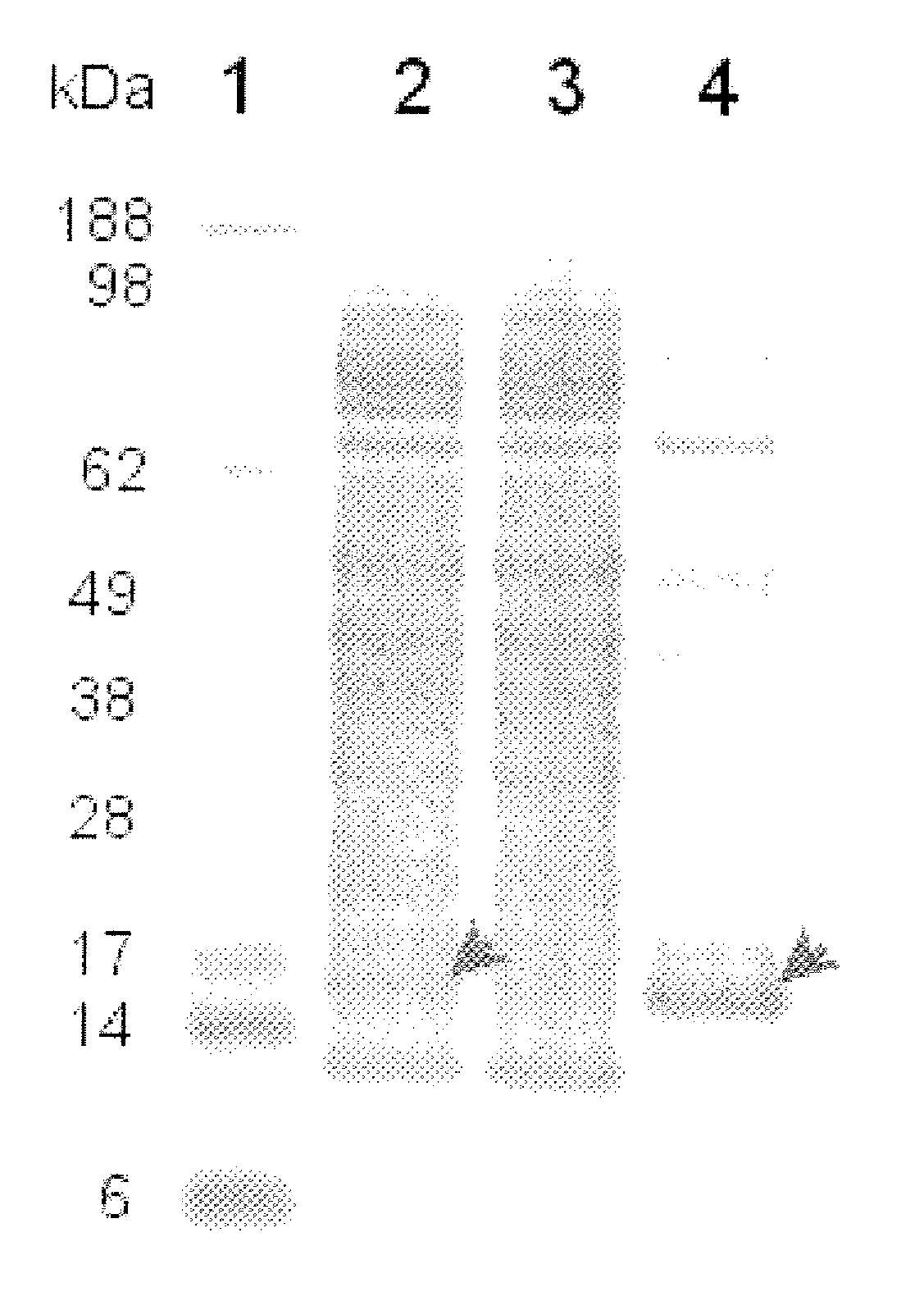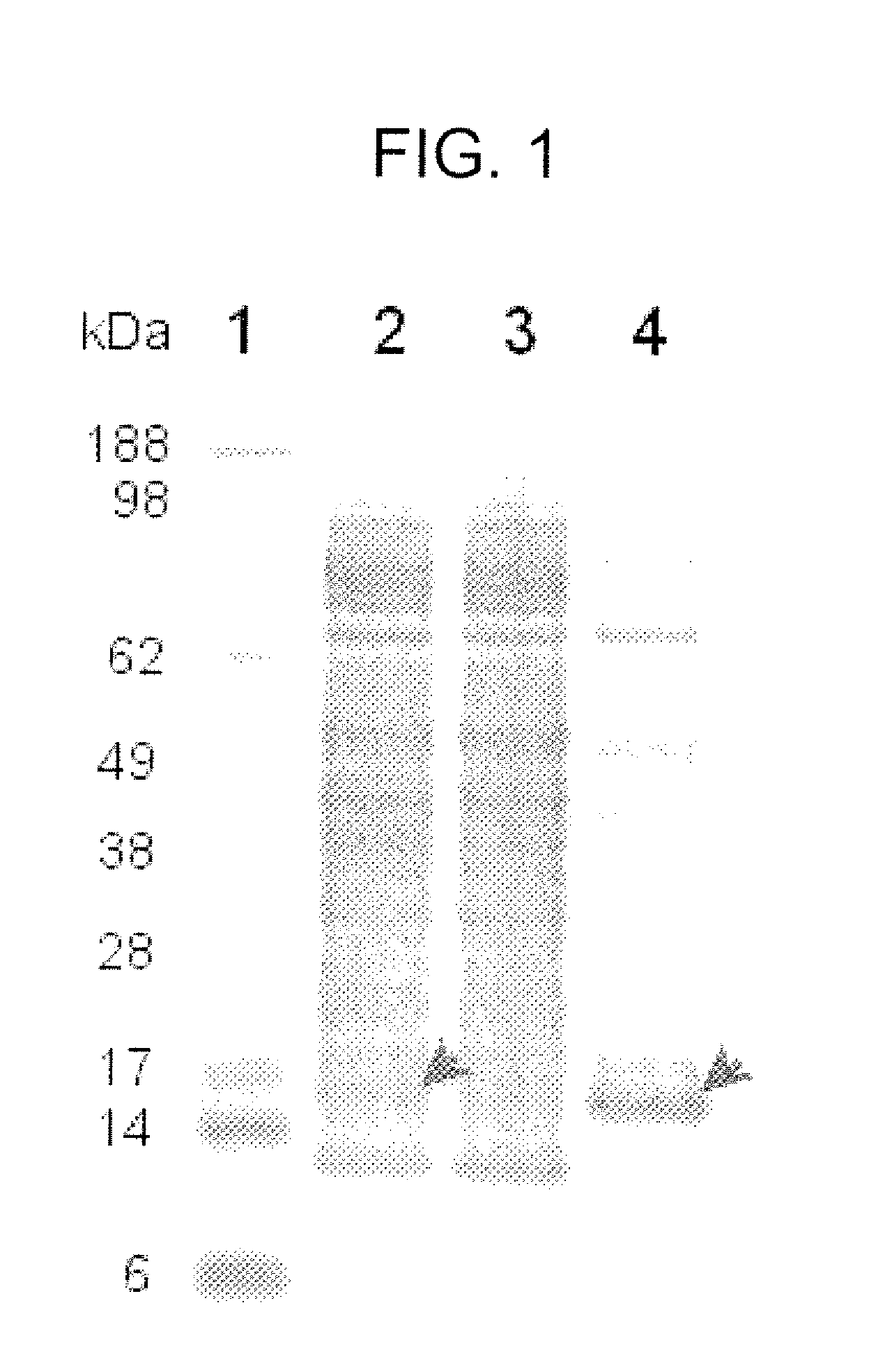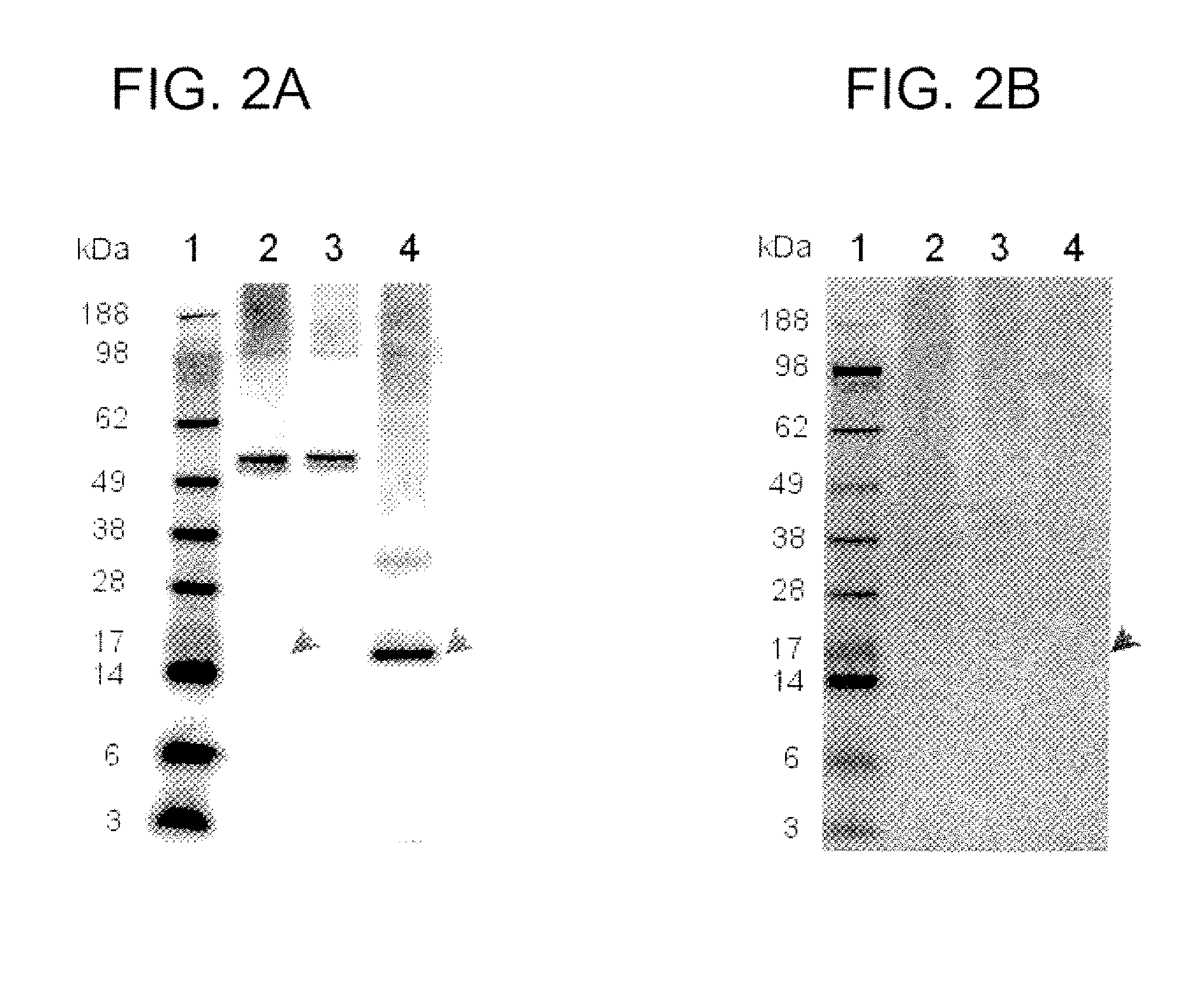Canine Thymic Stromal Lymphopoietin Protein and Uses Thereof
a technology of thymic stromal lymphopoietin and canine thymic stromal lymphopoietin, which is applied in the direction of peptide/protein ingredients, depsipeptides, antibody medical ingredients, etc., can solve the problems of hair loss, reddening, and thickening of the skin, and avoidance is generally impractical, and none of these treatments work in all cases
- Summary
- Abstract
- Description
- Claims
- Application Information
AI Technical Summary
Benefits of technology
Problems solved by technology
Method used
Image
Examples
example 1
The Canine TSLP DNA and Protein Sequences
[0143]A canine gene expressing canine TSLP was identified by an iterative process employing data mining in electronic data bases and molecular biology methods, as described in detail supra.
Results
[0144]The canine TSLP gene sequence is illustrated by FIG. 8A (SEQ ID NO: 1), and the predicted protein expressed TSLP protein is illustrated by FIG. 8B (SEQ ID NO: 2). Residues 1-28 of FIG. 8B (SEQ ID NO: 2) marked by the asterisk, represent the signal sequence, and residues 29 to 155 represent the mature protein.
example 2
Cloning and Expression of Canine TSLP
[0145]The DNA encoding canine TSLP was identified as described herein and cloned into a donor vector art standard methods pDONR221 (Invitrogen Gateway System). Gene assembly and cloning into the donor vector was performed at a contract research organization called DNA 2.0, and resulted in the construction of a plasmid called pDONR221.G03276 which contains the identified genomic canine TSLP gene. DNA encoding mature (i.e. without signal sequence) canine TSLP protein was PCR-amplified from pDONR221G03276 using two primers which contain Nco I and EcoR V sites, respectively:
Primers(SEQ ID NO: 4)#1:5′ AATAATCCATGGCATACAATTTCATTGACTGTGAC-3′;and(SEQ ID NO: 5)#2:5′-AAAATAGATATCTGAAATGCGACTGAAACGACG-3′.
[0146]After Nco I and EcoR V digestion, the PCR products were inserted into Nco I and Sma I sites of vector pIVEX 1.3 WG (Roche Applied Sciences, Cat#3728803). This resulted in a plasmid containing the gene which encodes the mature canine TSLP fused with si...
example 3
Production of Canine TSLP from Host Cells
[0147]To express recombinant TSLP protein in E. coli, the nucleotide sequence encoding cTSLP (i.e., TSLP lacking nucleotides encoding the signal sequence) was amplified by PCR using plasmid 1265-66C as a template together with a forward primer and reverse primers that contain NcoI and Hind III site respectively:
Forward Primer(SEQ ID NO:6)5′-AATAATCCATGGCATACAATTTCATTGACTGTGAC-3′Reverse Primer(SEQ ID NO:7)5′-ACATAAAAGCTTTGAAATGCGACTGAAACGACG-3′
[0148]After Nco I and Hind III digestion, the PCR products were inserted into NcoI / HindIII sites of pET42b(+) expression vector (Novagen). This process produced a plasmid which encodes the mature cTSLP fused with GST tag at the N terminus and a 6×His tag at the C terminus. The plasmid containing correct sequences of the insert was named as 1265-938. Expression of the GST-TSLP-His fusion protein was carried out in E. coli BL21 (DE3) / pLysS which contains the T7 RNA polymerase gene under the control of the ...
PUM
| Property | Measurement | Unit |
|---|---|---|
| Fraction | aaaaa | aaaaa |
| Fraction | aaaaa | aaaaa |
| Fraction | aaaaa | aaaaa |
Abstract
Description
Claims
Application Information
 Login to View More
Login to View More - R&D Engineer
- R&D Manager
- IP Professional
- Industry Leading Data Capabilities
- Powerful AI technology
- Patent DNA Extraction
Browse by: Latest US Patents, China's latest patents, Technical Efficacy Thesaurus, Application Domain, Technology Topic, Popular Technical Reports.
© 2024 PatSnap. All rights reserved.Legal|Privacy policy|Modern Slavery Act Transparency Statement|Sitemap|About US| Contact US: help@patsnap.com










